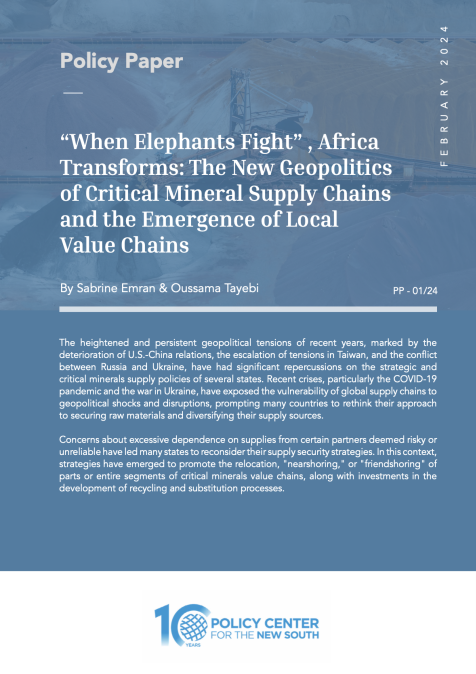Publications /
Policy Paper
The heightened and persistent geopolitical tensions of recent years, marked by the deterioration of U.S.-China relations, the escalation of tensions in Taiwan, and the conflict between Russia and Ukraine, have had significant repercussions on the strategic and critical minerals supply policies of several states. Recent crises, particularly the COVID-19 pandemic and the war in Ukraine, have exposed the vulnerability of global supply chains to geopolitical shocks and disruptions, prompting many countries to rethink their approach to securing raw materials and diversifying their supply sources.
Concerns about excessive dependence on supplies from certain partners deemed risky or unreliable have led many states to reconsider their supply security strategies. In this context, strategies have emerged to promote the relocation, "nearshoring," or "friendshoring" of parts or entire segments of critical minerals value chains, along with investments in the development of recycling and substitution processes.








